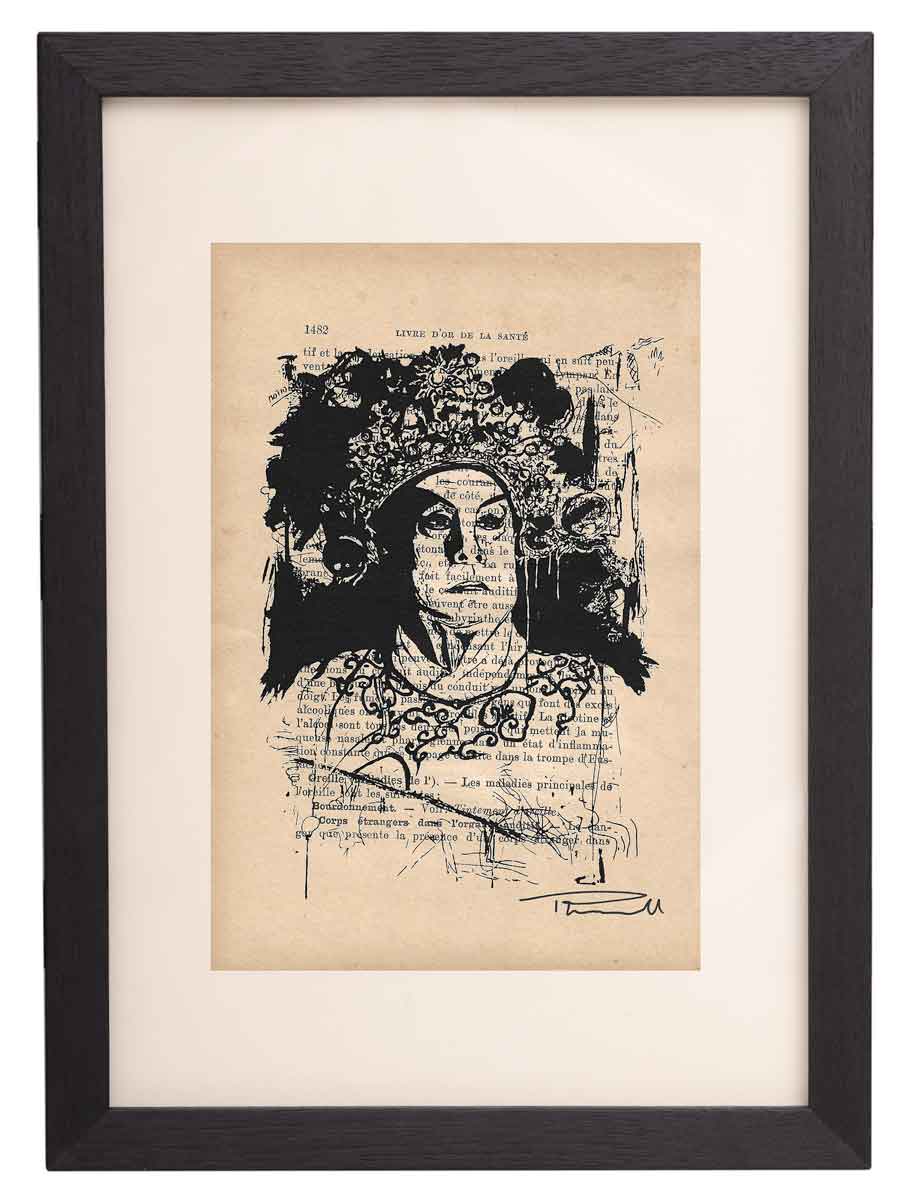About the Piece
Based on a painting of an opera character from the Hungry Ghost Festival in Penang.
Completed in 2018
The Hungry Ghost Festival is a traditional Buddhist and Taoist festival held in certain East Asian countries. According to the Chinese calendar (a lunisolar calendar), the Ghost Festival is on the 15th night of the seventh month (14th in parts of southern China).
In Chinese culture, the fifteenth day of the seventh month in the lunar calendar is called Ghost Day and the seventh month in general is regarded as the Ghost Month (鬼月), in which ghosts and spirits, including those of deceased ancestors, come out from the lower realm, the deceased are believed to visit the living.
On the fifteenth day the realms of Heaven and Hell and the realm of the living are open and both Taoists and Buddhists would perform rituals to transmute and absolve the sufferings of the deceased. Intrinsic to the Ghost Month is veneration of the dead, where traditionally the filial piety of descendants extends to their ancestors even after their deaths. Activities during the month would include preparing ritualistic food offerings, burning incense, and burning joss paper, a papier-mâché form of material items such as clothes, gold and other fine goods for the visiting spirits of the ancestors. Elaborate meals (often vegetarian meals) would be served with empty seats for each of the deceased in the family treating the deceased as if they are still living. Ancestor worship is what distinguishes Qingming Festival from Ghost Festival because the latter includes paying respects to all deceased, including the same and younger generations, while the former only includes older generations. Other festivities may include buying and releasing miniature paper boats and lanterns on water, which signifies giving directions to the lost ghosts and spirits of the ancestors and other deities.
Concert-like performances are a prominent feature of the Ghost Festival in Singapore and Malaysia. Those live concerts are popularly known as Getai in Mandarin or Koh-tai in Hokkien Chinese. They are performed by groups of singers, dancers, entertainers and opera troops or puppet shows on a temporary stage that is set up within a residential district. The festival is funded by the residents of each individual district. During these Getai the front row is left empty for the special guests—the ghosts. It is known to be bad luck to sit on the front row of red seats, if anyone were to sit on them, they would become sick or similarly ailed.
Single colour, hand printed, screen prints on antique pages signed by Thomas Powell
Each page forms a unique background for each print
The combination of print and page forms a singular and distinctive image that cannot be reproduced
USD45.00
